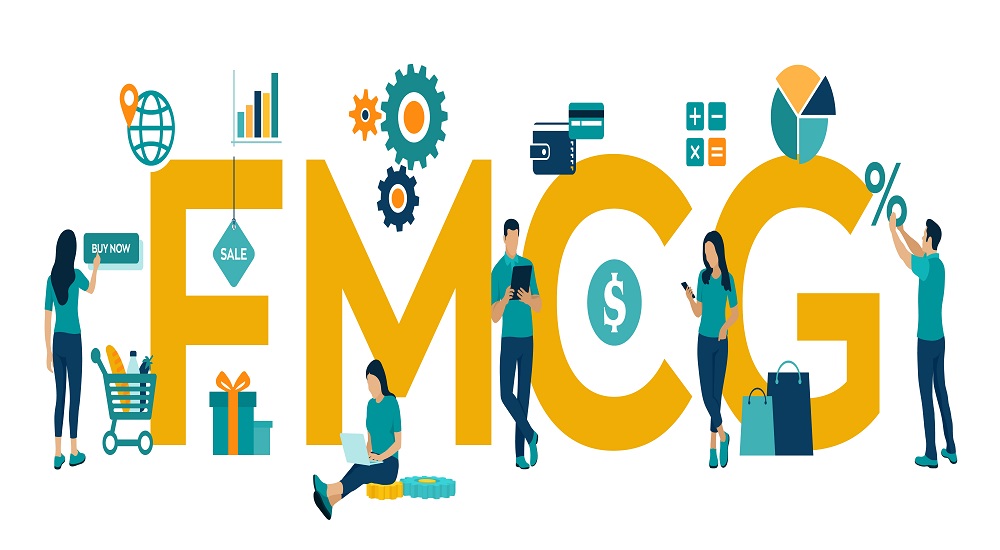Introduction
The fast-moving consumer goods (FMCG) industry is known for its dynamic and competitive nature. In such a market, it’s imperative to accurately predict demand, especially when it comes to promotional campaigns. Traditionally, FMCG promotion strategies have relied on historical data and manual forecasting methods, which can be limiting in today’s rapidly changing landscape. However, with the advent of AI-based demand forecasting and sophisticated demand planning techniques, the FMCG sector is experiencing a transformation that is revolutionizing how promotions are planned and executed. In this blog, we’ll explore the role of AI-based demand forecasting and demand planning in FMCG promotions and their profound impact on this industry.
The Essence of FMCG Promotion
Before diving into the role of AI and demand planning, let’s first understand the significance of promotions in the FMCG industry. FMCG products, which include items like toiletries, food, beverages, and household goods, have a short shelf life and high consumer demand. The market is highly competitive, and customers often make quick decisions based on factors like price, product availability, and brand reputation.
Promotions are a vital tool in the FMCG industry to:
- Attract New Customers: Promotions can entice new customers to try a product or brand.
- Increase Sales: Discounts and special offers boost sales volume during promotional periods.
- Clear Inventory: FMCG products often have a limited shelf life, so promotions help clear out excess stock before items expire.
- Enhance Brand Visibility: Well-executed promotions can increase brand visibility and consumer engagement.
- Compete Effectively: In a competitive market, promotions help FMCG companies stay competitive and maintain or increase market share.
However, traditional methods of planning and executing promotions often fall short when it comes to predicting the outcomes of such campaigns accurately.
The Role of AI-Based Demand Forecasting
Artificial Intelligence (AI) is rapidly transforming the way FMCG promotions are executed. AI-based demand forecasting, powered by machine learning algorithms, plays a crucial role in this transformation. Here’s how AI-based demand forecasting works:
- Big Data Analysis: AI can process vast amounts of data, including historical sales data, customer behavior, market trends, and external factors that influence demand.
- Pattern Recognition: Machine learning algorithms can recognize intricate patterns and correlations in data that may be too complex for traditional forecasting methods.
- Real-Time Insights: AI-based demand forecasting provides real-time insights, enabling companies to adapt to rapidly changing market conditions and make data-driven decisions.
- Scenario Analysis: These systems can run “what-if” scenarios to simulate the impact of various promotional strategies and help businesses choose the most effective ones.
AI-based demand forecasting has several advantages when it comes to FMCG promotion:
- Precise Sales Predictions
AI can provide highly accurate sales predictions, taking into account a myriad of factors, such as seasonal variations, customer behavior, and market trends. This precision is essential for planning successful promotions.
- Real-Time Adjustments
FMCG companies can make real-time adjustments to promotions based on AI-generated insights. This agility ensures that promotions are effective even in the face of unexpected market shifts.
- Promotion Optimization
AI can analyze large datasets to determine the optimal promotion strategy, including the timing, pricing, and target audience. This ensures that promotions have the maximum impact on sales.
The Significance of Demand Planning
Demand planning, an integral part of the FMCG promotion process, involves using the insights provided by AI-based demand forecasting to develop strategies that optimize resources and operations. Here’s why demand planning is so crucial:
- Inventory Management
Effective demand planning helps businesses maintain optimal inventory levels, preventing overstocking and understocking issues. This balance is crucial for ensuring that products are available during promotions.
- Resource Allocation
Demand planning allocates resources, such as staff, equipment, and transportation, more effectively. During promotions, this ensures that the company can meet surges in demand and then adjust when the demand levels off.
- Pricing Strategies
Pricing strategies are a key component of promotions. Demand planning helps determine the right pricing strategy to maximize sales and profitability during promotions.
- Supply Chain Management
The supply chain plays a critical role in FMCG promotion. Demand planning ensures that the supply chain is optimized to deliver products to the right locations at the right times, especially during promotional periods.
- Customer Satisfaction
Meeting demand effectively during promotions is essential for customer satisfaction. When customers can find and purchase promoted products effortlessly, it leads to higher customer satisfaction and loyalty.
- Cost Reduction
By avoiding the pitfalls of overstocking and understocking, demand planning helps reduce operational costs, improve profitability, and make the most of promotional budgets.
Real-World Applications
The impact of AI-based demand forecasting and demand planning in FMCG promotion is evident in numerous real-world scenarios:
- Consumer Goods Industry
Major players in the consumer goods industry, such as Procter & Gamble and Unilever, have incorporated AI-based demand forecasting and demand planning into their operations. These companies use machine learning algorithms to predict demand for products, optimize promotions, and enhance their overall supply chain management.
- Food and Beverage Companies
The food and beverage industry, known for its short product shelf life, uses AI-based demand forecasting to optimize production and plan promotions effectively. Companies like Nestlé and Coca-Cola use real-time data analysis to adjust promotions based on customer behavior and market dynamics.
- Retail Chains
Large retail chains like Walmart and Target leverage AI-based demand forecasting to optimize inventory management and design effective promotions. Real-time data analysis helps these companies make data-driven decisions to maximize sales and customer satisfaction during promotions.
- Online Marketplaces
E-commerce platforms like Amazon and Alibaba utilize AI-powered demand forecasting to optimize product recommendations, pricing strategies, and inventory management during promotional events. These platforms analyze vast amounts of data to ensure promotions are effective and profitable.
Challenges and Considerations
While AI-based demand forecasting and demand planning offer significant advantages, it’s essential to be aware of potential challenges and considerations:
- Data Quality: The accuracy of forecasts depends on the quality and cleanliness of the data. Inaccurate data can lead to incorrect conclusions and decision-making.
- Technology Investment: Implementing AI-based systems can be costly, requiring investments in technology and staff training. However, the long-term benefits often outweigh the initial costs.
- Privacy and Ethical Concerns: As these systems often rely on customer data, privacy and ethical considerations are paramount. Companies must adhere to strict data protection regulations and establish transparent policies.
- Continuous Learning: Machine learning models require ongoing monitoring and retraining to maintain accuracy. Neglecting this can lead to deteriorating performance.
Conclusion
AI-based demand forecasting and demand planning have revolutionized the way FMCG promotions are executed and managed. These technologies provide unparalleled accuracy and agility, enabling FMCG companies to make informed decisions and maximize the impact of their promotions.
As technology continues to evolve and as FMCG companies gather more data than ever before, the potential for AI-based demand forecasting and demand planning to transform the FMCG sector is only set to grow. Embracing this paradigm shift is not just a choice but a necessity for businesses looking to thrive in today’s complex and competitive FMCG market. With the power of AI and data-driven strategies, companies can confidently plan and execute promotions that not only attract customers but also enhance their overall operational efficiency and profitability.



